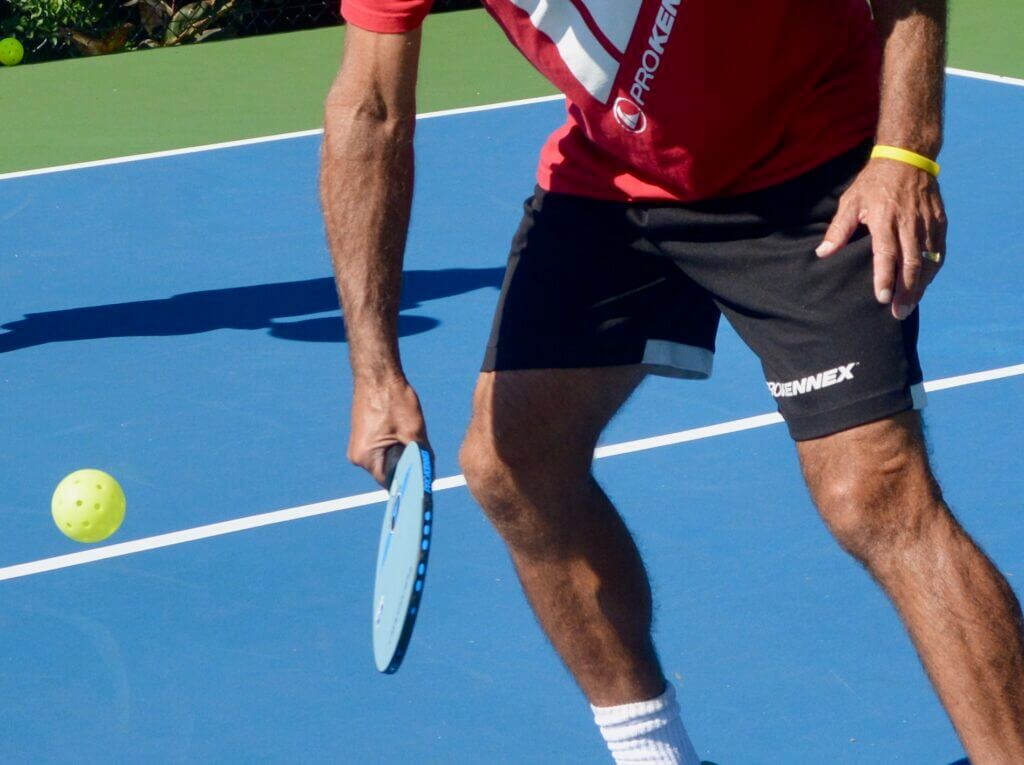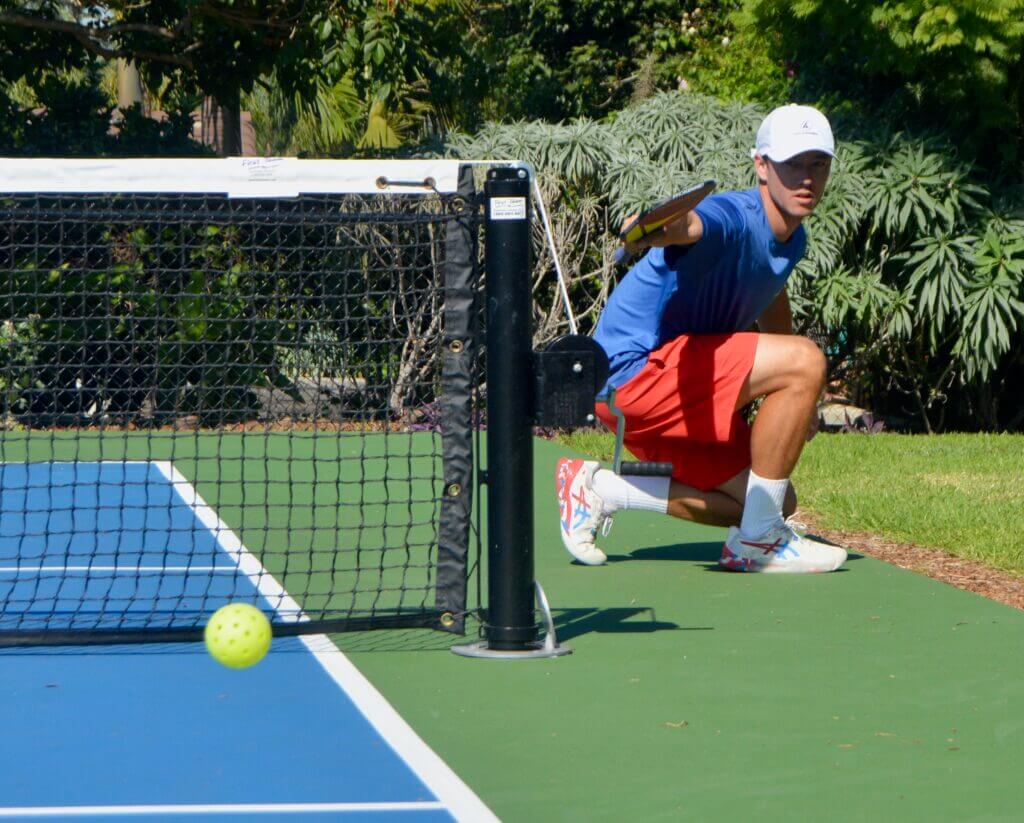When you’re working on improving your Pickleball game you have to engage your mind as well as your body.
Today we want to discuss the mind, or more specifically, the thinking mind.
Author and Ph.D. Barbara Oakley wrote a book called “A Mind for Numbers” that brings up an interesting concept…
And that’s the difference between “focused” and “diffused” thinking.
I couldn’t help relate this to Pickleball as I see this over and over again with the players I coach, and even in my own game.

“Focused” thinking is exactly what it sounds like – it’s what happens when you’re intensely focused on solving a specific problem.
We all require this level of thinking on a certain level as it allows you to execute a new task, learn a new trait or improve on a concept.
“Focused” thinking happens primarily in the prefrontal cortex of the brain… It also requires discipline and distraction-less attention.
Meanwhile, “diffuse” thinking is more about big picture thinking.
This mode is all about distractions.
At first you’d think that the author would ridicule “diffuse” thinking, but quite the opposite.
In diffuse thinking you let your mind wander freely and make connections at random.
It usually occurs in the midst of engaging in other activities, such as driving, taking a shower or passively listening to a podcast.
It’s often the source of our best ideas.
The brain is not focusing on a specific problem, and yet because your brain is so active, it’s quietly connecting dots in the background and helping you move towards a solution.
When it comes to Pickleball, or more specifically, helping players improve their Pickleball game…
It’s super important to look at the two types of thinking for different types of play.
When you’re practicing or trying to improve your Pickleball game, “focused” thinking is paramount.
You really need to be looking at your technique, footwork, grip, balance and shot mechanics like a surgeon.
There’s a ton going on all at once and you have a split-second to make all these calculated decisions in a point.
The more practice you have with “focused” thinking in your preparation to match, the more freely you can play with big points.
I hear all the time: “I wish I played this well in a real match”

People often play so well in practice for two reasons:
1) There’s no pressure, real or imagined.
2) They’re using “focused” thinking
What happens in match play is that we often try to deploy “focused” thinking and end up over-thinking our entire game.
And that’s when things slip away, quickly.
I don’t think “diffuse” thinking is the ideal mindset strategy during match play.
But I also don’t think “focused” thinking is either.
In a match you have to TRUST in your “focused” thinking, practice and visualizations that you’ve done prior to the match.
A match is a time to showcase what you’ve learned.
Of course after a match you can take lessons from your experience, but in the moment, you want to grasp the elements of “diffuse” thinking that lets you take in multiple things at once.
What are the shot patterns?
Where are you winning the most points?
How can I keep my opponent off-balanced?
What shot have I yet to show my opponent?
What’s the score and how should that dictate my game?
So instead of “diffuse” thinking I think a better term is “attentive diffuse” thinking.
In match play, the keyword is finding “flow.”
And that flow-state is most easily found with a more “diffuse” albeit “attentive” state of mind.
You have an attentive objective, but you’re allowing your mind to think freely within the context of the game.
You’re not giving into the temptation of “focusing” in on one element of your game or improving a shot.
Mindset is so critical in those seeking to improve their Pickleball game.
At the professional level, everyone has great shots.
It’s mindsets, mental chess and keeping your opponent guessing which separates the good v. greats.
